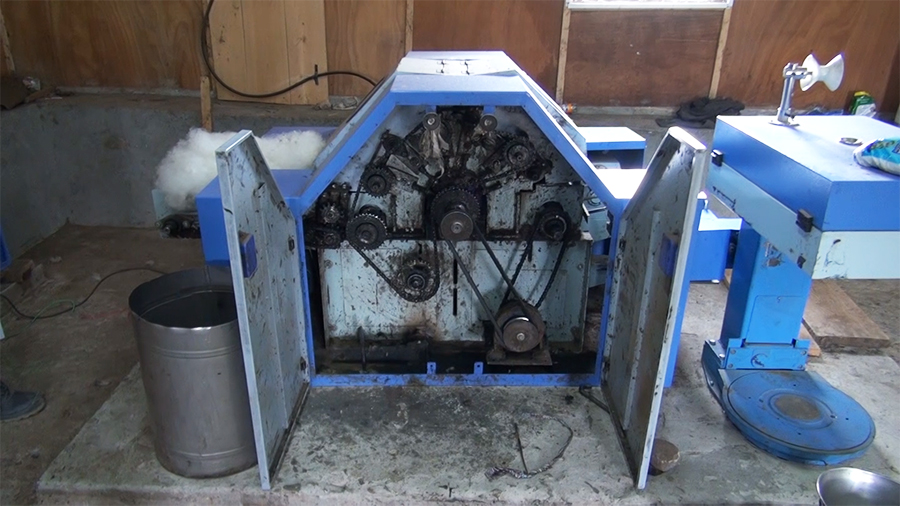
The wool-processing machines in Merak in Trashigang have changed the way the people of Merak make wool yarns. However, due to frequent breakdowns of the carding machine, villagers are concerned that they may have to resort to the traditional method of using handmade brushes and spindles to make yarns. Carding is crucial for ensuring that all wool fibres are untangled and aligned in one direction, which makes for smooth spinning.
This wool-processing centre in Merak has wool washing, drying, carding, and combing machines. The machines were installed in 2019.
Through the machines, it not only reduces the workload but also promotes sheep rearing in Merak.
A group called Buchung Kelwa Zangpo Amtshu Detshen with 92 members is managing the centre.
According to some members of the group, the carding machine, which is a critical component of the process, experiences sudden breakdowns. For a few months, the machine remained inoperable until temporary repairs were made.
“The wool-processing centre was closed for two to three months after the carding machine was damaged. We do not have any skilled person here to repair it. I did not receive any training but the experts while installing the machine provided instructions on how to fix it. Moreover, I am also interested in repairing machines,” said Dawa, one of the group members.
“Machine takes about two to three hours but if we do it manually, it takes around five to six days. That is also just for carding purposes. Now I am worried that I have to do it manually because the machine was damaged. I am not sure whether it is repaired or not, I have washed and kept the wool in my house,” said Dorji Dema, a resident.
“With the present machine, it is very easy to make yarn. When we use the traditional method, it consumes a lot of time,” said Rinchen, another resident.
People of Merak use woolen yarn to weave their traditional attire and even blankets.
Sonam Darjay, Trashigang
Edited by Tshering Zam








